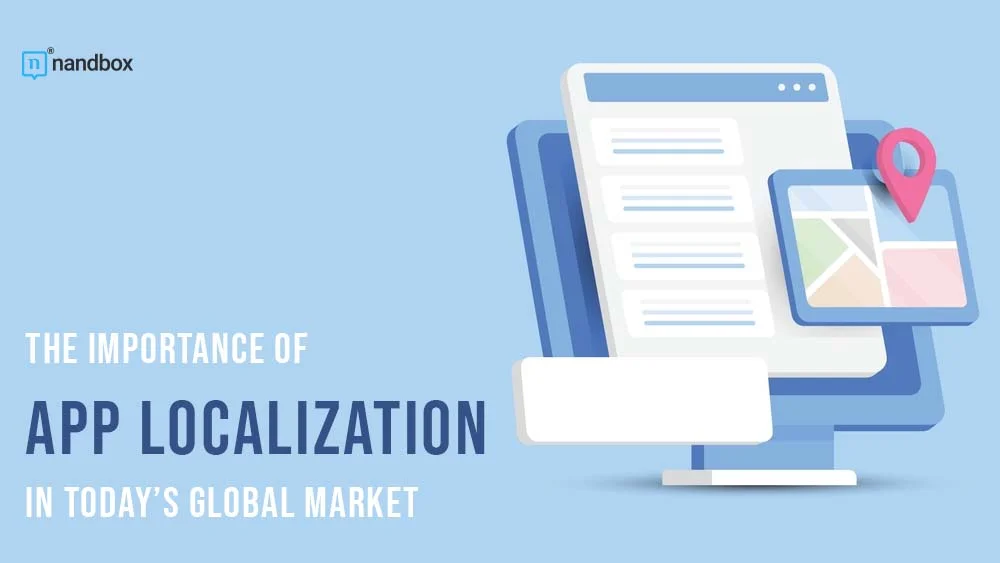In our modern, interconnected world, businesses have an unprecedented opportunity to expand their reach globally. Thanks to the internet and the increasing use of smartphones, companies can now connect with customers in virtually every corner of the globe. However, merely having a digital presence is no longer enough for success. Moving beyond a one-size-fits-all approach is crucial to truly thriving in the global market. With the latest projections estimating that 72% of people worldwide will only use their smartphones to access the internet by 2025, investing in applications has become a business necessity. These applications directly link businesses and customers, offering convenience, personalization, and seamless interactions. This not only enhances brand loyalty but also opens up avenues for innovative marketing strategies, data-driven insights, and valuable customer feedback. This is where app localization comes into play.
By tailoring the user experience to specific linguistic, cultural, and technical preferences, app localization ensures that businesses can effectively engage and resonate with audiences worldwide, ultimately leading to greater market penetration and sustained global success.
The following article will examine why app localization is crucial for a company to thrive globally. But first, let’s start by explaining what app localization is.
Understanding App Localization
In brief, app localization is the process of tailoring a mobile application to cater to a specific target market’s linguistic, cultural, and technical needs. It encompasses tasks such as content translation, adapting design elements, or even adjusting functionality.
The primary goal is to guarantee that users across various regions enjoy an optimal and seamless experience. This meticulous adaptation ensures that the app resonates with the local audience, breaking down barriers and fostering a deeper connection between the product and its users. By doing so, companies can significantly enhance their global market presence and solidify their position as user-centric entities.
Top Reasons Why App Localization Is So Important in 2023
Breaking Down Language Barriers
First, app localization helps break down language barriers with prospective international app users, a fundamental pillar of the process.
The fact remains that, despite English being the most prevalent world language, 65% of consumers prefer content in their native language. Since most international apps require translation and localization in many languages, breaking down the language barrier is not the easiest or cheapest part of the app localization process for companies.
To close the language gap as efficiently and cost-effectively as possible, most companies opt to work with professional translators and empower them with comprehensive translation solutions to embrace workflow automation and utilize machine translation as much as possible to get the best results for “pennies on the dollar.”
Ultimately, successful app localization not only enhances accessibility but also cultivates a profound sense of trust and familiarity with the brand, establishing a stronger bond between the product and its users.
Catering to Cultural Sensitivities
Beyond language, culture plays a crucial role in shaping user preferences and behaviors. Colors, symbols, images, and even gestures can hold vastly different meanings across cultures. For example, while the color red may symbolize luck and prosperity in China, Western cultures often associate it with danger.
Failing to account for these cultural nuances can result in a disconnect between the app and its users, potentially leading to a loss of trust or even rejection of the product.
Adapting Functionality and Features
Different regions may have varying technological infrastructures, legal requirements, or user preferences. For instance, payment methods, date formats, and privacy regulations can differ significantly from one country to another. Effective localization goes beyond mere translation; it encompasses adjusting date formats, currencies, images, colors, and even functionalities to resonate with the target audience. By investing in mobile app localization, developers can expand their reach, enhance user engagement, and increase downloads by offering a personalized and seamless experience to users across various regions and languages.
A localized app must be capable of accommodating these differences, ensuring a seamless and compliant user experience. Failure to do so can lead to frustration and, ultimately, the loss of potential customers.
Gaining a Competitive Edge
In the global market, competition is as fierce as ever. Businesses are vying for the attention and loyalty of consumers, with many choices at their fingertips.
App localization is not merely an optional extra but a strategic imperative. A localized app demonstrates a commitment to meeting the unique needs of diverse customer bases, setting a business apart from competitors who may not have taken this crucial step.
Boosting User Engagement and Retention
A localized app is more likely to resonate with users, creating a more positive and engaging experience. When users feel that you designed your app with their specific needs in mind, they are more likely to become loyal customers.
This can lead to increased user retention rates and higher customer lifetime value, ultimately contributing to your business’s long-term success.
App Localization Is a Must!
In an era of global connectivity, app localization is not a luxury but a must for businesses seeking to thrive internationally. By breaking down language barriers, respecting cultural sensitivities, and adapting functionality to meet local requirements, companies can demonstrate a genuine commitment to their diverse user base. This sets them apart from competitors and lays the foundation for long-term success in a global market.






